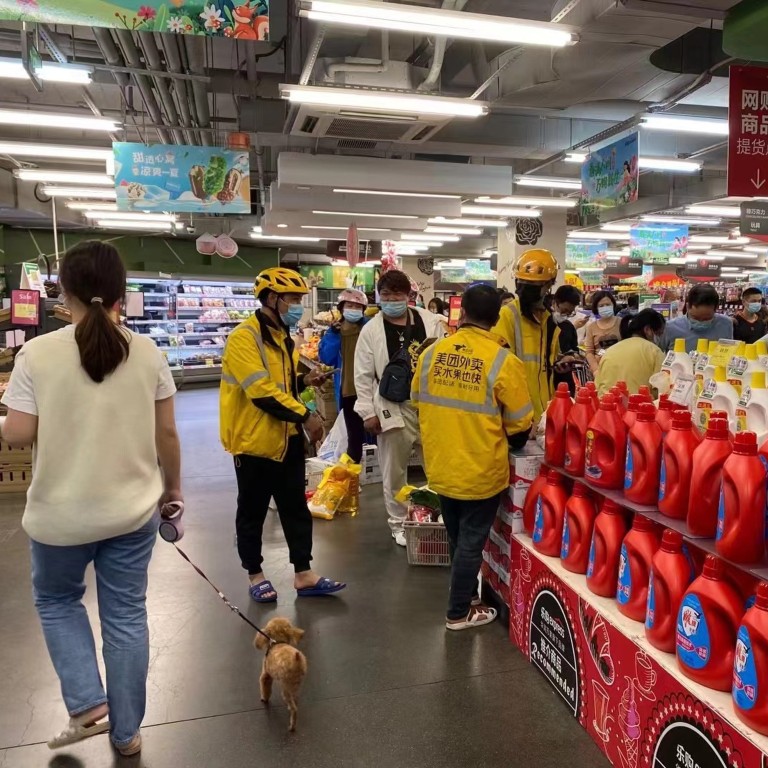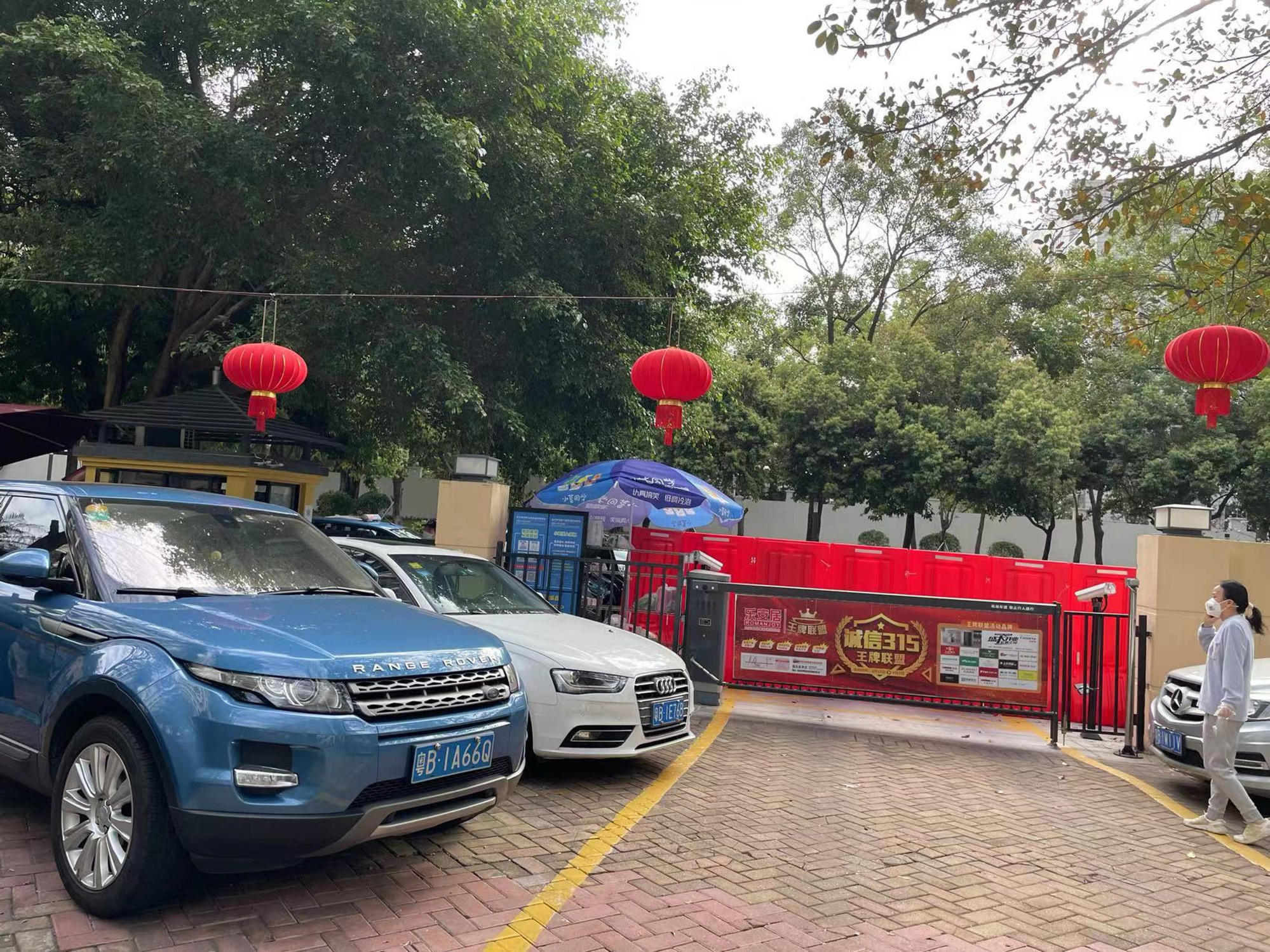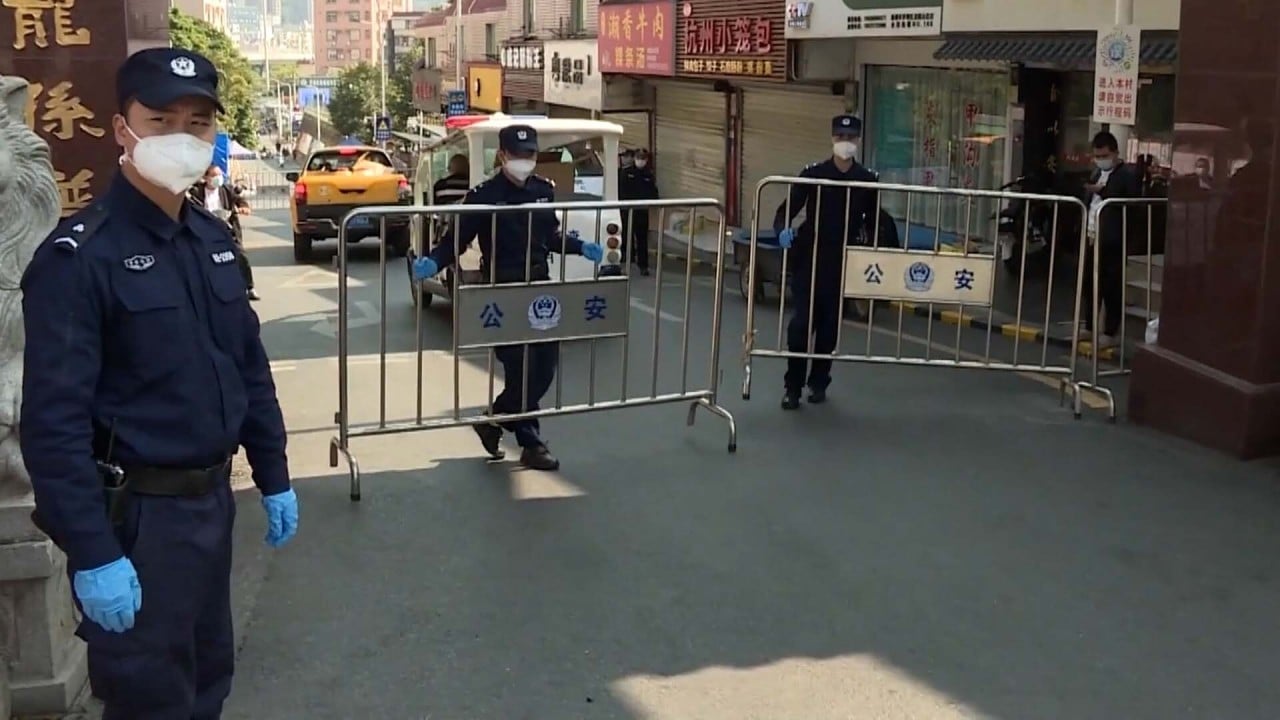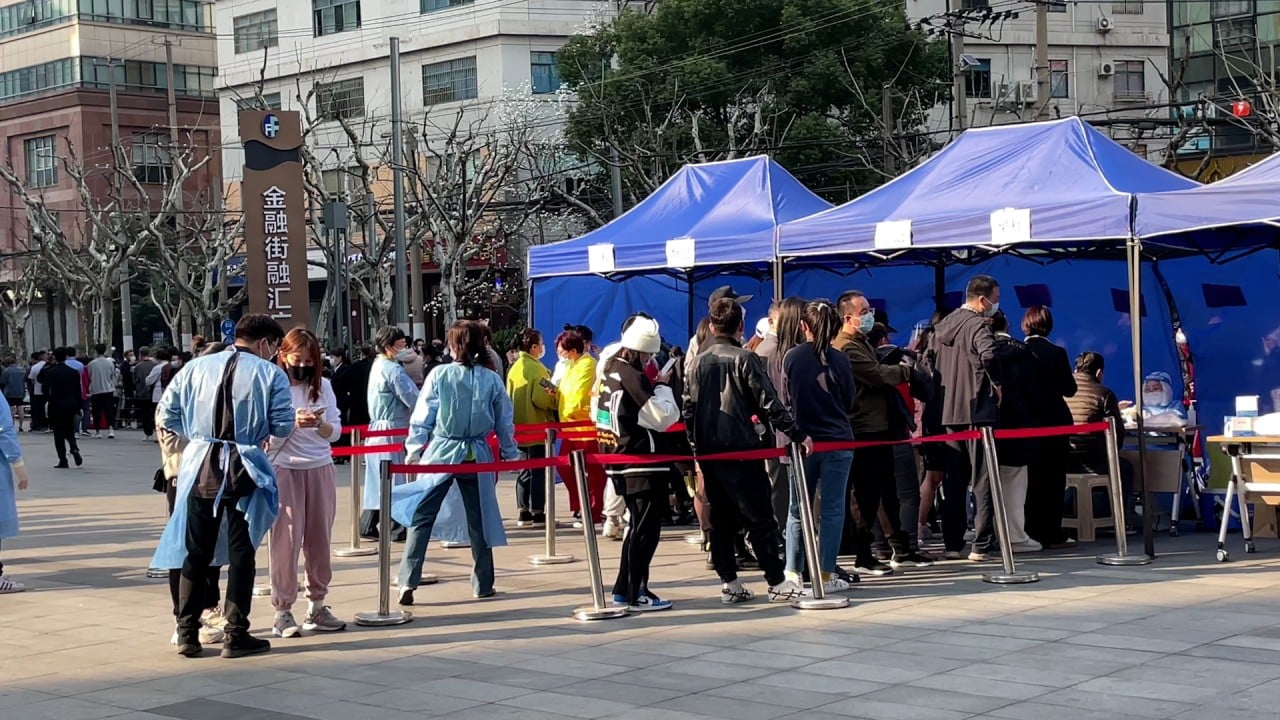
In countdown to Covid-19 lockdown, Shenzhen residents stockpile food – and some point finger of blame at Hong Kong
- Public transport has been suspended and restrictions placed on movement as the city of 17 million tries to contain its outbreak
- Some people on social media have expressed anger at neighbouring Hong Kong and blamed illegal border crossing for the surge in cases
Shenzhen residents raced to stock up on supplies on Sunday, causing long queues in supermarkets and traffic jams on some streets.
Foxconn suspends iPhone factories in Shenzhen amid lockdown of tech hub
On Sunday night, the southern Chinese tech hub announced the heaviest restrictions since 2020 when the coronavirus first struck. All subway and bus services are halted and movement in communities is restricted.
Three rounds of citywide mass screening will also be conducted. The neighbouring industrial city of Dongguan also followed up with similar measures on Monday.
On Monday, Shenzhen reported 75 confirmed local cases and 26 imported cases, 24 of them from Hong Kong, while mainland China logged a total of 1,437 confirmed cases. This followed 60 confirmed cases and another six asymptomatic patients announced on the previous day.
However, for many Shenzhen residents, the new restrictions are nothing more than a normalised process that they have long got used to over the past few months.
Since the new year, Shenzhen has had on and off Covid-19 outbreaks, with new confirmed cases almost daily, as neighbouring Hong Kong reached new highs and many have already become used to mass screening and travel restrictions.
Zoey Zhou, an interior designer, said when she received an update on her phone, telling residents in her building to come downstairs for screening at 6pm on Monday, she was not surprised.
“We’ve been doing it daily for some time now,” she said. “This new round isn’t any different.”
Mass screening in the city starts with a message from a specific community or residential compound, telling people of the time slots and location they can get nucleic acid tests. When queuing, everyone is required to show a health code and scan another code to input their information, including names and addresses.
Chinese cities rush to contain Covid-19 wave as daily cases top 1,000 again
Then, they are divided into teams of 10 for testing. The result usually comes out in a few hours and is automatically updated via smartphone QR codes. The testing process normally takes about 10 minutes to an hour.
Besides testing, Shenzhen students have also been studying online since mid-February. Some companies, including internet giant Tencent, have been letting employees work from home.
A notice from Tencent advised employees to never go anywhere without their computers and chargers, even when they are getting a nucleic acid test, in case they are put under quarantine at short notice.

A Shenzhen doctor said that under the new restrictions, her hospital had arranged for staff to rotate.
“We have to make sure that there’s always someone at essential posts, including the emergency room,” she said.
Other essential services, including the city’s stock exchange and other financial institutions, food sellers and hotels will also remain open.
Michael Li, a book editor in Shenzhen, said his residential compound was allowing people to enter or exit if they could show a test result. He went to a supermarket for groceries on Monday morning, and would later go for a jog. But for the rest of the day, he planned to work from home.
Even though public transport has stopped, people with emergency business can still take the taxi or order deliveries.
Huang Qiang, deputy secretary of the city’s government, said the high risk of community spread had prompted these measures. As rounds of screenings are carried out in the next few days, there is a possibility of increasing counts.
“We upgraded these preventive measures in order to find potential sources of transmission with the fastest speed, and to achieve zero-Covid in the shortest time possible,” he said.
Shenzhen steps up searches near Hong Kong border to stop Covid-19 cases
However, the measures are still causing some degree of inconvenience and some are expressing anger towards Hong Kong.
A Shenzhen blogger posted a photo of Hongkongers enjoying the beach on Sunday on Weibo, saying “Shenzhen is almost in a lockdown … meanwhile, this is what Hong Kong beaches are like”.
Another social media user wrote: “I really dislike hk at the moment, the mainland paid a huge price supporting hk medically, and look at the result, look at the stowaways [illegal entrants], they are getting sz to lock down and infecting Shanghai as well.”
There have also been calls on social media to seal off the border to prevent the further spread of the disease.

.jpg?itok=H5_PTCSf&v=1700020945)

